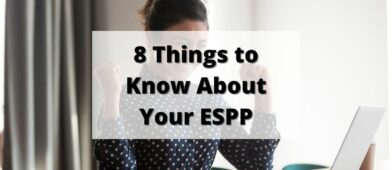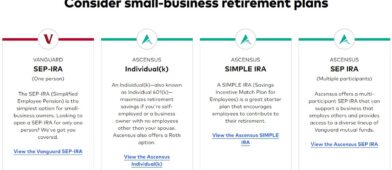With the median price of a house now sitting at a lofty $430,300, qualifying for a mortgage isn’t the only obstacle facing prospective homebuyers. Coming up with a down payment is another challenge all its own. That raises the question, can I use my 401(k) to buy a house?
The short answer is, sometimes.
On the surface, using a 401(k) to buy a house seems logical. After all, for most individuals and households, a 401(k) plan is the single largest asset and source of funds that they have. But just because you have money in a 401(k) doesn’t necessarily mean you should use it to buy a house. Let’s examine the reasons why.
Table of Contents
- Can I Use My 401(k) to Buy a House?
- 1. Withdrawing from Your 401(k) Without Restriction
- 2. Taking a Hardship Withdrawal
- 3. Taking a 401(k) Loan
- Pros & Cons of Using a 401(k) to Buy a House
- Alternatives to Using Your 401(k) to Buy a House
- Use a VA Loan – If You Have Eligibility
- Get a Gift from a Family Member
- Tap Your IRA
- Government Down Payment Assistance Programs
- Should You Use Your 401(k) to Buy a House?
- FAQs
Can I Use My 401(k) to Buy a House?
There are instances where you can use a 401(k) to buy a house. But even if you can, the real question is, should you?
Have you ever heard the saying, there are no solutions, only trade-offs? That’s exactly what happens when you use money from a 401(k) to buy a house. While there are ways you can make it happen, there will be consequences no matter which path you take.
With that in mind, here are the three most common strategies people use to buy a house with funds from their 401(k).
1. Withdrawing from Your 401(k) Without Restriction
There are times when you can withdraw from your 401(k) plan without restriction. The most common example is when you are 59 ½ and are separated from the employer sponsoring the plan.
You’ll still have to pay ordinary income tax on the amount you withdraw at both the federal and state levels (if your state has an income tax.) But there will be no 10% early withdrawal penalty (because of your age), nor will an employer restrict your access to the funds.
Another example is when you are younger than 59 ½ but separated from the employer sponsoring the plan. In that case, you’ll be free to access the funds from the plan at any time you want and in any amount available.
Once again, you will be required to pay ordinary income tax on the amount of funds you withdraw. You will also be required to pay the 10% early withdrawal penalty.
2. Taking a Hardship Withdrawal
Though not many plan participants are aware of it, the IRS does permit hardship withdrawals from a 401(k) plan. But ultimately, the decision to allow hardship withdrawals rests with the sponsoring employer.
The IRS permits hardship withdrawals if there is an immediate and heavy financial need, even when the need is “reasonably foreseeable or voluntarily incurred by the employee.” Even then, the withdrawal amount can be no greater than the actual financial need and taken only after the employee has exhausted all other potential financial sources.
Meanwhile, the employee cannot make elective deferrals to the plan for at least six months after the hardship distribution. Those distributions can only be made from the amount of the employee’s elective contributions, profit-sharing contributions, and regular employer-matching contributions. The portion of your plan representing investment earnings on those contributions is not eligible for withdrawal.
But just because the IRS permits hardship withdrawals doesn’t mean your employer does or must. An employer can even limit the purposes for a hardship withdrawal. For example, the provision may be limited to covering medical costs or avoiding foreclosure. It may not provide for the purchase of a home.
You’ll need to check with your employer to determine if hardship withdrawals are permitted under your plan and if those withdrawals extend to purchasing a house.
Note: You will be required to pay income tax on the amount of a hardship withdrawal. And while the IRS allows taxpayers to withdraw up to $10,000 from an IRA account penalty-free, the same privilege does not extend to 401(k) plans and other employer-sponsored retirement plans.
Even if you are granted a hardship withdrawal from your 401(k) plan for the purpose of buying a house, you’ll still be required to pay ordinary income tax on the amount withdrawn, plus the 10% early withdrawal penalty if you are under 59 1/2.
3. Taking a 401(k) Loan
IRS regulations provide for the ability to take loans against a 401(k) plan. But similar to hardship withdrawals, employers are not required to offer this provision. You’ll need to check with your employer to see if 401(k) loans are permitted within your plan.
If they are, the IRS imposes the following regulations on 401(k) loans:
- The maximum loan amount is 50% of the vested balance in your plan, up to a maximum of $50,000. However, you may borrow up to 100% if the vested plan balance is less than $10,000.
- You will be required to repay the loan within five years. However, there may be exceptions if the loan is taken to purchase a primary residence. Once again, this is at the discretion of your employer.
- The loan may require your spouse’s written consent if it exceeds $5,000, though this requirement varies by employer.
- Repayments must be made with interest, which will be paid into your plan. Payments must be made at least quarterly.
- Because a 401(k) loan is a loan and not a withdrawal, there are no tax consequences.
Sounds like a good deal, right? But there is an important gotcha provision you need to be aware of.
If you separate from your employer, you will generally be required to repay the full amount of the 401(k) loan within 60 days of separation. If you don’t, the outstanding loan balance will be considered to be a distribution. It will then be subject to ordinary income tax and, if you are under 59 ½, the 10% early withdrawal penalty as well.
Pros & Cons of Using a 401(k) to Buy a House
Pros:
- Your 401(k) is probably your largest financial asset and a natural source of funds for the down payment on a house.
- You can typically borrow or withdraw funds from a 401(k) plan in just a few days.
- No credit or income qualification is required whether you withdraw funds or take a loan from your plan.
- The interest rate on a 401(k) plan loan is typically lower than what you will pay for any alternative financing, including personal loans.
- There are generally no fees associated with withdrawals and loans from 401(k) plans.
- If you take a 401(k) plan loan, repayments will be deducted from your paycheck automatically, eliminating the need to make a dedicated monthly payment.
- There are no tax consequences for taking a 401(k) loan.
Cons:
- Withdrawals from a 401(k) plan, including hardship withdrawals, are subject to ordinary income tax.
- If you take a withdrawal from a 401(k) plan before reaching age 59 ½, you’ll also be subject to a 10% early withdrawal penalty.
- 401(k) loans are limited by the vested balance in your plan. If your vested balance is $20,000, you’ll only be able to borrow $10,000.
- If you leave your employer before your 401(k) loan is paid in full, the outstanding balance will become a distribution subject to ordinary income plus the early withdrawal penalty if you are under 59 ½.
- Not all employers permit hardship withdrawals or 401(k) loans.
- Proceeds from a 401(k) loan must be repaid with interest.
- Money taken from your 401(k) plan to purchase a house, whether through a loan or a hardship withdrawal, will reduce the amount of funds you’ll have available for retirement.
Alternatives to Using Your 401(k) to Buy a House
Given the many drawbacks of taking a hardship withdrawal or a loan from your 401(k) to buy a house, you should consider the following alternatives before you proceed.
Use a VA Loan – If You Have Eligibility
If you are a current or former member of the United States military, you may be eligible for a VA loan. These are mortgages insured by the Veterans Administration to provide veterans and current members an opportunity to buy a house under more favorable terms.
That includes 100% financing, which is essentially a zero-down payment loan. And in certain markets where it’s customary, you can even request the seller pay your closing costs.
The VA has very specific guidelines to determine eligibility for a VA loan. You will not be eligible for a VA loan if you don’t meet those qualifications or if you have no connection to the US military. But if you do, this is perhaps the best loan program available to eliminate the need for a down payment.
Get a Gift from a Family Member
Most mortgage lenders will allow you to accept a gift for the purpose of a house down payment. Lenders have specific guidelines for this, but a gift from a family member is a way to cover your down payment without having to come up with the funds on your own.
Tap Your IRA
You can borrow up to $10,000 from your IRA when you purchase a home. However, you will still be required to pay ordinary income tax on the distribution amount. The 10% early withdrawal penalty will be waived on up to $10,000 withdrawn. But it will apply to any amounts that exceed this limit if you are under 59 ½.
Government Down Payment Assistance Programs
It’s possible to get down payment assistance from state or local governments to cover some or all of the required down payment on a house. These programs can be used in conjunction with low down payment first mortgages, particularly FHA loan programs.
For example, FHA loans typically provide first mortgages equal to 96.5% of the purchase price of a house. Buyers must come up with the remaining 3.5% as a down payment. However, there may be down payment assistance programs available in your state to cover the down payment.
The U.S. Department of Housing and Urban Development (HUD) has a webpage listing resources for down payment assistance in all 50 states.
Technically, down payment assistance programs are available for first-time homebuyers. That usually extends to anyone who has not owned a house for at least the past three years or does not own any other real estate. Some will also restrict the assistance to low or moderate-income households.
Down payment assistance can come from grants (which do not require repayment), forgivable second mortgages, low-interest loans, and other programs.
Should You Use Your 401(k) to Buy a House?
While it can be tempting to use your 401(k) to buy a house, it’s a strategy that’s best avoided. Yes, it may provide the funds you need for the down payment. But the price you will pay will likely be too steep.
A 401(k) loan will be the best option, but it will come with a repayment plan. And if you should leave your employer before the loan is repaid, you’ll either be required to pay back the loan in full, or it will be declared to be a taxable distribution.
If you withdraw outright from your 401(k) plan, you’ll be required to pay ordinary income tax on the amount withdrawn, plus a 10% penalty if you are under 59 ½.
Finally, withdrawing funds from your 401(k) to buy a house undermines the most fundamental reason for having the plan in the first place – your retirement. Any money withdrawn from a 401(k) plan will be that much less you’ll have when retirement rolls around. And if you withdraw the funds when you are in your 20s or 30s, the long-term impact of the lost investment returns on that money will negatively affect your ability to retire when the time comes around.
FAQs
It can make sense if you are using a 401(k) loan to cover part or all of your down payment. As long as you can comfortably afford the payments on the loan – in addition to the monthly payment on the new house – this can be a good strategy.
However, 401(k) plan withdrawals often have too many costly provisions to make them worthwhile. First, you must pay ordinary income tax on the amount withdrawn. Second, you must pay a 10% early withdrawal penalty if you are under age 59 ½.
If you have a combined state and federal tax rate of 20%, you’ll pay 30% on the withdrawal of 401(k) funds with the early withdrawal penalty factored in. A $50,000 401(k) withdrawal can produce a $15,000 tax liability.
Theoretically, at least, you can withdraw the entire amount from your 401(k) – if the plan is from an employer you no longer work for. If you take a 401(k) loan, the maximum loan amount will be 50% of your vested balance, up to $50,000.
You can only withdraw funds from a 401(k) plan without penalty if you’re at least 59 ½ years old. Otherwise, there is no penalty exemption for withdrawing funds from a 401(k) to purchase a house.



